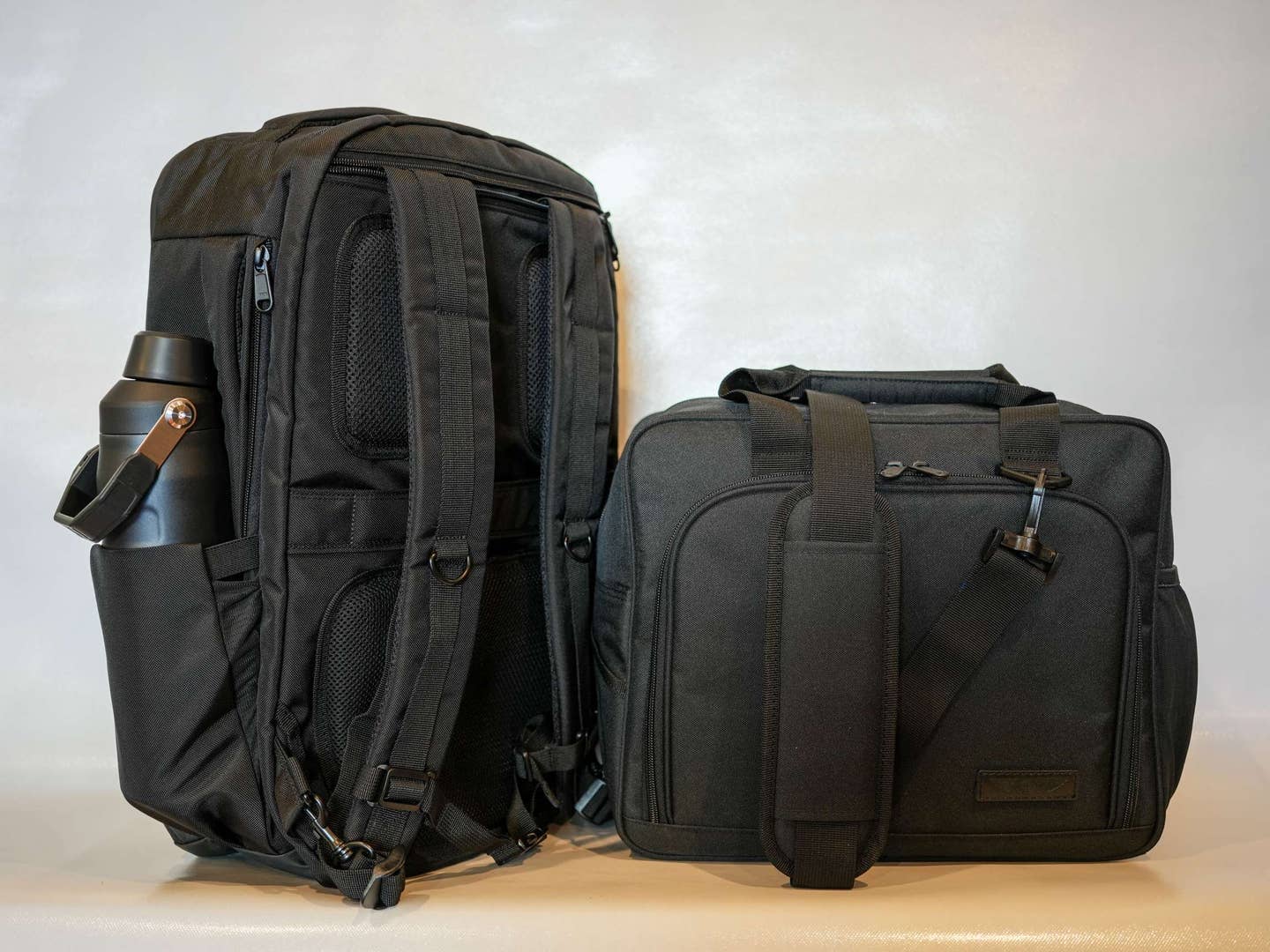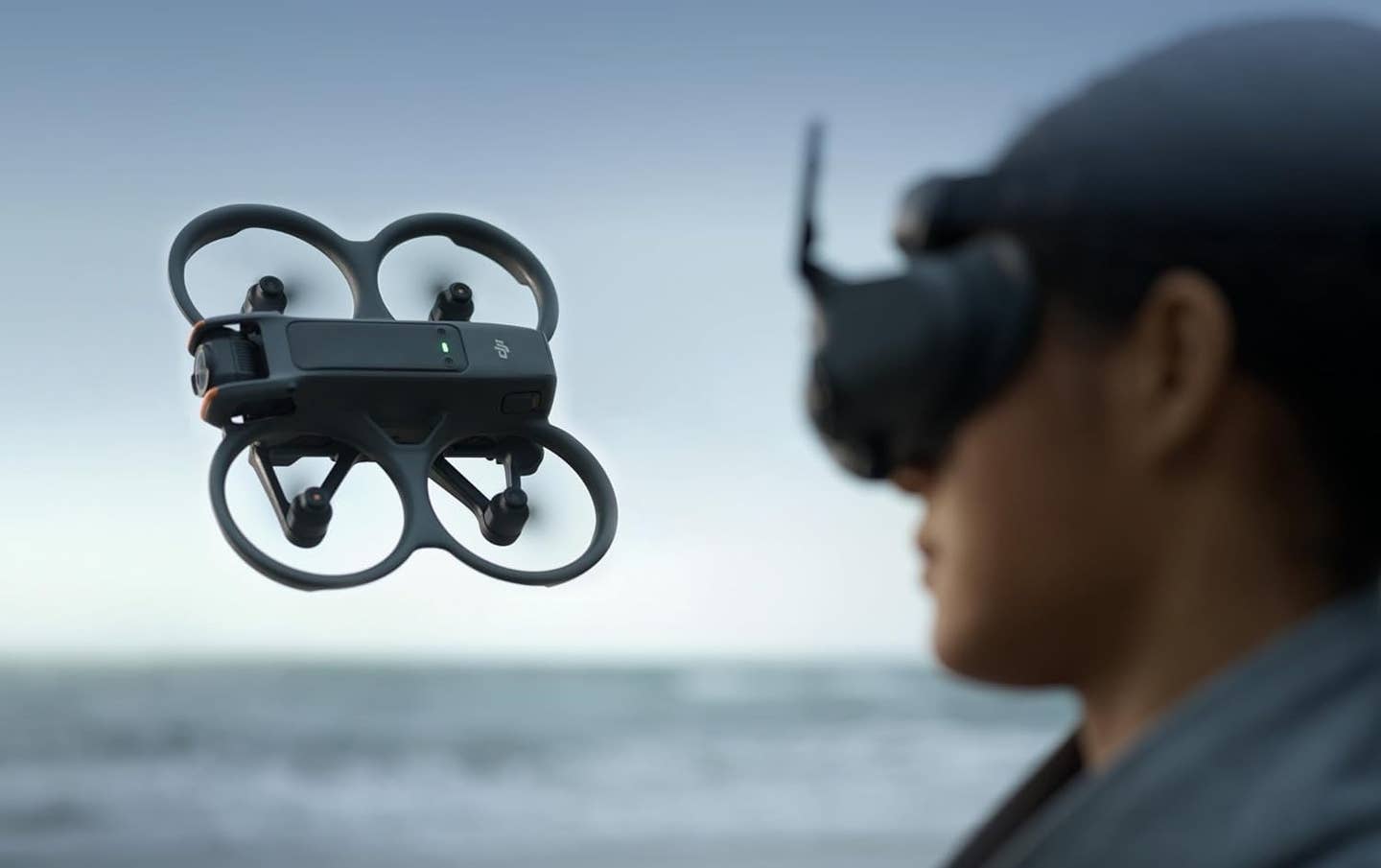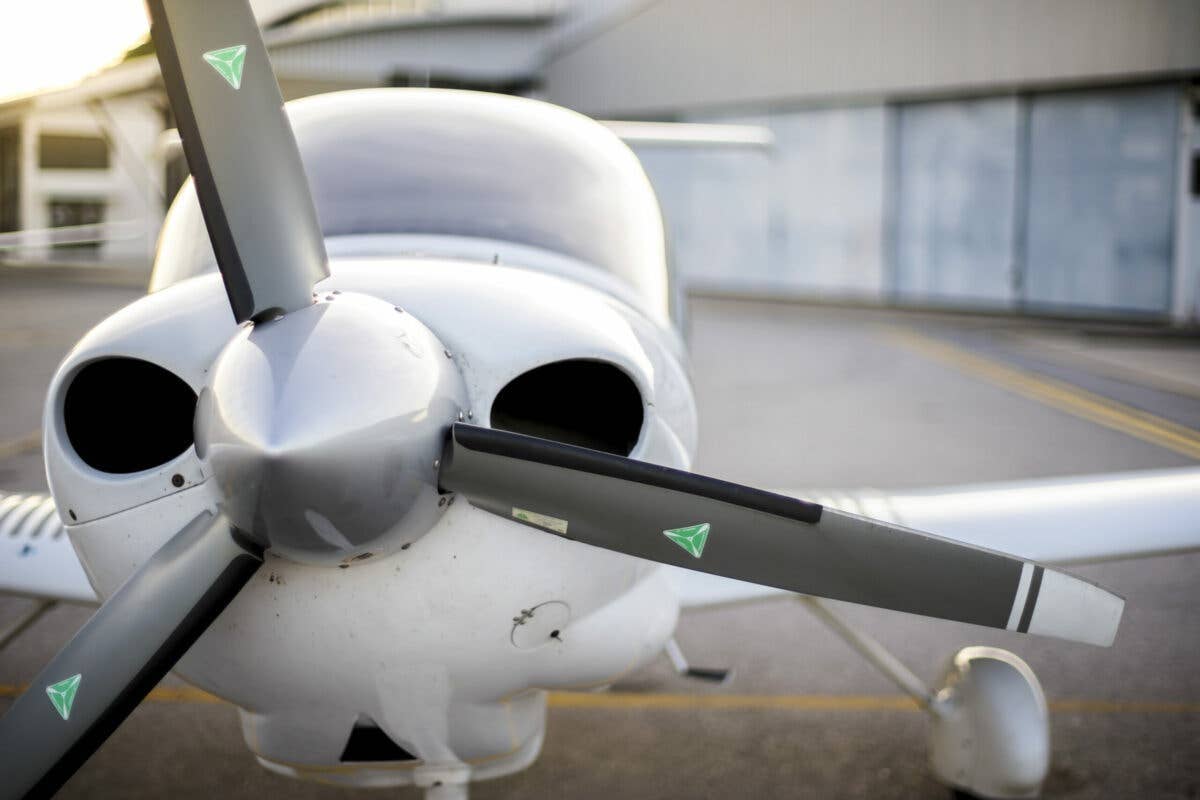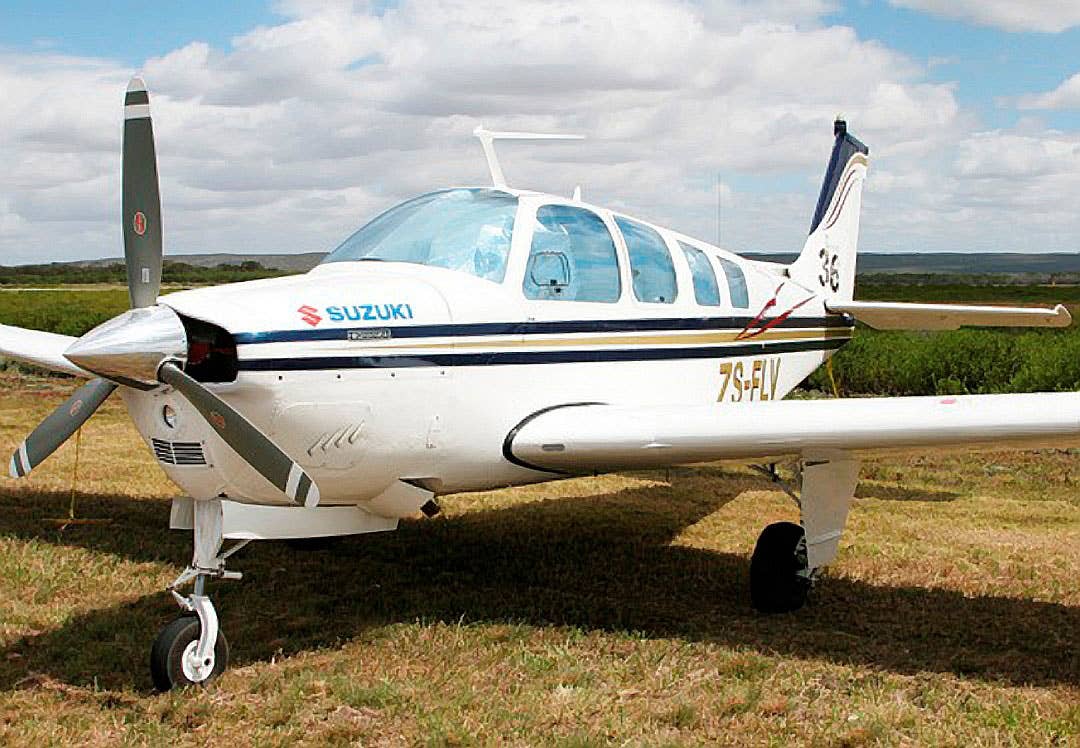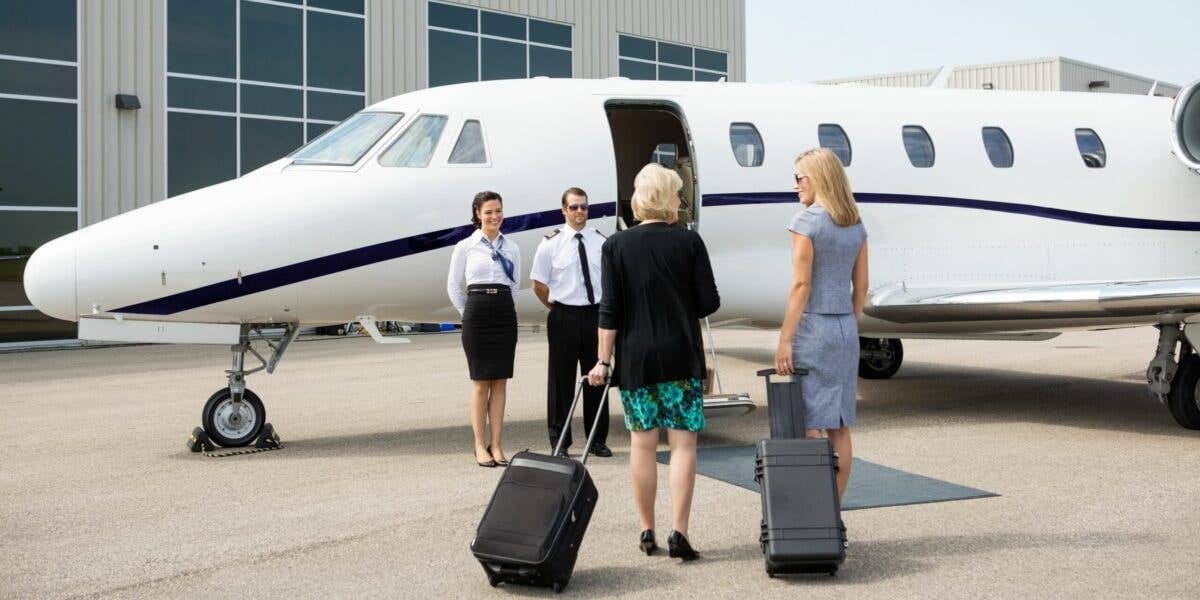Building the Ultimate Flight Simulator Setup at Home
If you’re looking for a second-to-none setup, these flight simulator accessories are great picks.
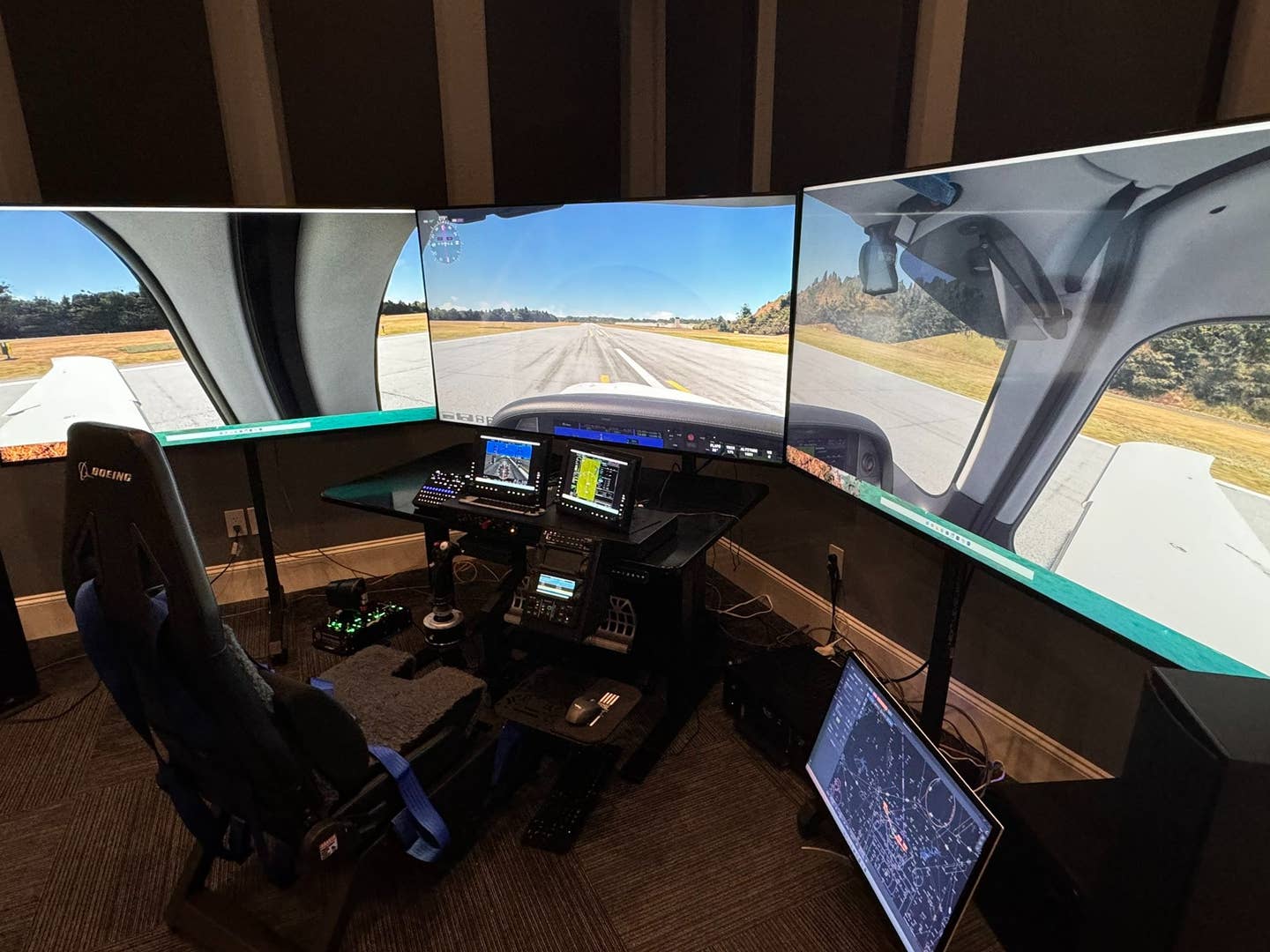
Firecrown CEO Craig Fuller recently upgraded his home simulator to teach his children to fly.
For pilots and aviation enthusiasts alike, the next best thing to flying itself is a flight simulator.
As little as a few hundred dollars can build a basic flight sim at home with a set of controls and a computer program. A lot more money can outfit an airline with a full-motion simulator to train pilots to fly without leaving the ground.
Somewhere in between the entry-level system and the airline training simulator, the ultimate personal flight sim setup provides a realistic flying experience from the comfort of your own home.
There are many benefits to flight simulators, whether they are FAA approved for loggable flight hours or not. Inclimate weather, maintenance delays, and operating costs can keep pilots grounded when they’d rather be working or training in the air.
Flight simulation is a way for pilots and enthusiasts to sharpen their skills at any time and in any virtual location or aircraft type they want.
The Ultimate Home Flight Sim
Creating the ultimate home flight simulator setup requires investing in premium gear for an immersive experience. A sense of realism can be achieved at home by prioritizing a few key elements.
Craig Fuller, CEO of Firecrown (which owns FLYING Magazine among other aviation media brands), recently shared his complete flight sim setup in a post on X (formerly Twitter). It’s a setup that will make any pilot proud.
“I recently upgraded my home simulator to teach my kids to fly,” Fuller wrote.
In a thread, he details the premium components he chose for his simulator and why. We’ll highlight some of his picks, as well as other industry favorites and recommendations.
Essential Components
Essential components for any home flight sim setup include the frame, visual displays, computer, flight controls, and software.
In a sea of endless options and customizations, we’ve rounded up our favorite flight simulator components in each category to help you build the ultimate home flight sim.
Cockpit Frame
The frame is the foundation of any flight sim setup. A simulator frame is a structure that contains all of the essential parts like the monitors, computers, and controls.
It’s important to have a well-constructed frame to mount rudder pedals, yokes, and seats to hold them in place and allow for more realistic feedback and control inputs.
Most premade simulator frames are aluminum or steel. Many include a seat that is either already attached or can be easily installed by the user.
Frame Recommendations
Craig’s pick: Boeing Commercial Edition From Next Level Racing
- Highlights: This officially licensed Boeing rig comes complete with a faux wool-lined seat embroidered with the Boeing logo and royal blue accents. According to Fuller, it’s “sturdy and looks amazing.” Compatible with any leading brand of flight controls, this cockpit frame is the perfect foundation for a serious home simulator.
- Price: $775
Also check out:
- Single monitor mount: RealSimGear Flight Sim Seat & Frame Bundle
- Triple monitor mount: Volair Universal Flight or Racing Simulation Cockpit Chassis
Computer
Without a powerful computer, even the best cockpit frames, seats, and flight controls will be lacking. “The PC is the most important piece of hardware,” says Fuller. “Don't skimp on this.”
For the most realistic experience, you’ll need a computer that can keep up with the demands of your flight simulation software. Programs like Microsoft Flight Simulator rely heavily on processing power, graphics capabilities, and memory.
A high-performance PC ensures smooth graphics, quick response times, and the ability to run complex scenarios, making your simulation feel as close to real flying as possible.
Computer and Console Recommendations
Craig’s pick: Doghouse Systems FLYING Edition
- Highlights: Doghouse Systems teamed up with FLYING to create this gaming PC specifically designed for use in flight simulators. “I run three 65[-inch] 4K monitors in 4K with zero issues,” Fuller says. Further customize your computer build with upgrades to the memory, video card, and more.
- Price: $4,695
Also check out:
- Best gaming console: Xbox Series X
Visual Systems
Most home flight simulator setups use monitors or VR headsets to display the visuals that are essential for flight simming. Some larger systems utilize projectors for a different experience.
Projectors tend to require a lot more space and perform best in dark, windowless spaces like a basement or garage.
For the best at-home visuals, a large curved monitor or multiview display delivers quality graphics and a wide field of view, making your simulation sessions feel truly immersive and realistic.
Visual Display Recommendations
Craig’s pick: Multiview display of three Sony 65-inch 4K Ultra HD TV X85K Series
- Highlights: The smooth, clear picture on this display keeps pace easily with the fast-moving simulation graphics. Use a single monitor for a focused display, or mount a series of three for peripheral viewing.
- Price: $898 each
Also check out:
- Curved monitor: Samsung 55-inch Odyssey Ark 4K
- VR headset:- Meta Quest 3
Flight Controls
Flight controls are what most often come to mind when thinking about building a flight simulator. Even the most basic home setups have at least a stick and rudder.
When it comes to building the ultimate home flight sim, the sheer volume of flight control options can be overwhelming. Rudder pedals, yokes, and switch panels can be found in a wide array of price points, designs, and materials. Control panels can be exact replicas of a specific airplane cockpit, or a loose interpretation of the real thing.
For Fuller’s home flight sim, he chose a Boeing-branded yoke to match his sim frame. “Thrustmaster makes the best controllers on the market,” he says.
The throttle he chose is a replica of the A-10 Warthog throttle quadrant, also from Thrustmaster. Constructed primarily from metal, it’s a sturdier replacement for the plastic Boeing throttle quadrant that comes included with the Boeing-branded yoke.
Yoke
Craig’s pick: Thrustmaster Yoke Pack Boeing Edition
- Highlights: As official Boeing-licensed gear, this yoke and throttle quadrant bundle are ergonomic replicas of controls found on the iconic 787 Dreamliner. Compatibility with both Xbox and PC, automatic integration with Microsoft Flight Simulator, and a sturdy metal internal yoke structure make this set a no-brainer.
- Price: $499
Also check out:
- Best PC compatible: Honeycomb Alpha Flight Simulator Yoke
- Best Xbox compatible:- Turtle Beach VelocityOne Flight Universal Control System
Throttle
Craig’s picks: Thrustmaster HOTAS Warthog Dual Throttle and ThrustMaster TCA Yoke Pack Boeing Edition
- Highlights: The ultimate flight sim should have the coolest details possible, and what could be cooler than a replica A-10 Warthog throttle? With 17 action buttons, dual levers, and primarily metal construction, this throttle not only looks great but feels precise and enjoyable to use. Fuller also recommends the ThrustMaster Boeing Edition. “I bought it and love it, and it matches my cockpit,” he says.
- Price: $329
Also check out:
- Airbus throttle and stick bundle: Thrustmaster TCA Captain Pack - Airbus Edition
- PC compatible universal controls: Honeycomb Bravo Flight Simulator Throttle Quadrant
Rudder Pedals
Craig’s pick: Thrustmaster Pendular Rudder
- Highlights: A unique pendular design on these rudder pedals give realistic feedback and precise control. Weighing in at over 15 pounds, these pedals are constructed entirely of metal and provide excellent stability with or without mounting to a sim frame.
- Price: $599
Also check out:
- Best for Xbox: Turtle Beach VelocityOne Universal Rudder Pedals
Software
Selecting the right flight simulation software is crucial for creating the ultimate home flight simulator experience.
Your software choice will directly impact how immersive and realistic your flight simulator will be, so it's important to choose wisely. With a range of options available, the choice depends primarily on your personal goals.
When choosing software, consider factors such as the accuracy of the flight models, quality of the graphics, availability of updates and community support, and system requirements.
Flight Simulator Software Recommendations
Craig’s pick: Microsoft Flight Simulator
- Highlights: Beloved by home flight simmers around the globe, Fuller agrees MSFS is unmatched: “Microsoft Flight Simulator blends gaming with real-world scenarios and integrates Bing real-world graphics into the experience.” The much-anticipated new release of MSFS is expected to drop in November 2024.
- Price: $60-$120
Also check out:
- For excellent flight dynamics: X-Plane
Advanced Features and Customization
While advanced features like sound systems, motion platforms, and environmental feedback are not required to run an effective home simulator, they can certainly add depth to the experience.
Motion Platforms
A motion platform is a powered base that simulates movements like pitch, roll, and yaw, adding a tactile dimension and realism to a flight simulator.
Chandler Welling, co-founder and president of Podium1 Racing and home sim expert, says “[a] motion platform alone can be up to $28,000 for the top line, and that’s before any software or controls.”
According to Welling, when it comes to home flight simulators, “it’s important to know what you want to get out of it. A great system can be under $10K.”
While a motion platform is typically a pricey upgrade even in the lower price ranges, it’s a modification that can take your home sim to the next level. Motion simulators in the neighborhood of $28,000 are priced that way for a reason— they’re precise, quiet, and deliver a range of motion only otherwise achievable by actually flying an airplane.
Check out:
Haptic Feedback
Haptic feedback adds another layer of realism to the home flight simulator experience by providing tactile responses that mimic real-world sensations.
Through vibrations and force feedback in controls like yokes, rudder pedals, and throttles, haptics can simulate the feel of an aircraft's controls during various flight conditions.
Check out:
Best Turnkey Flight Simulators
If you’re less of a DIYer and looking for a bundle that has it all, a turnkey simulator may be right for you.
All-in-one bundles have the added benefit of guaranteed compatibility. Companies that offer turnkey simulator solutions have tried and tested different combinations of gear to find the best solutions.
Based on what works best and what their customers love, they’re able to put together complete rigs to meet different needs and price points.
Best Customizable Turnkey Flight Simulator
Highlights: The makers of custom sims for celebrities like Joe Rogan and Snoop Dogg have the market cornered on the coolest all-in-one racing and flight simulators. While Podium1 has focused most of their energy on building and marketing the best sims in racing, their expansion into flight simulators shouldn’t be overlooked. From fixed wing to rotorcraft, the variety of customizations they offer is only limited by your imagination.
Price: $12,999
Best FAA-Approved Turnkey Home Flight Sim
Highlights: This turnkey simulator isn’t just for fun; it can also be used for instrument currency and logging certain types of flight time. Not all simulators are approved by the FAA for logging hours, so for some pilots, this is a strong selling point. RealSimGear also has FAA-approved Piper, Diamond, and Cirrus simulators.
Price: $21,795
Get Ready to Build Your Home Simulator Setup
Creating the ultimate home flight simulator requires thoughtful planning and consideration of each key component.
The best approach is to determine your goals and priorities before you begin crafting your setup to be sure you hit all of the elements that are most important to you. Home flight simming is not only a great way to stay sharp as a pilot, it’s also incredibly fun.
By investing in top-of-the-line gear and software, you can build a simulator that meets all of your personal sim goals and creates a realistic and immersive flight experience.
FAQ
What is the best flight sim set up?
The best flight sim setup includes realistic flight controls, powerful computers and visual displays, and simulation software. Advanced systems often include add-ons like motion feedback and sound effects.
How to build a flight simulator setup?
Flight simulator setups can be pieced together from different brands and systems depending on the user’s preferences. There are also turnkey systems that require minimal assembly from the user and come mostly pre-built.
What equipment is needed for Microsoft Flight Simulator?
The minimum equipment required to run Microsoft Flight Simulator is an Xbox or PC and a gaming controller or set of basic simulator flight controls.
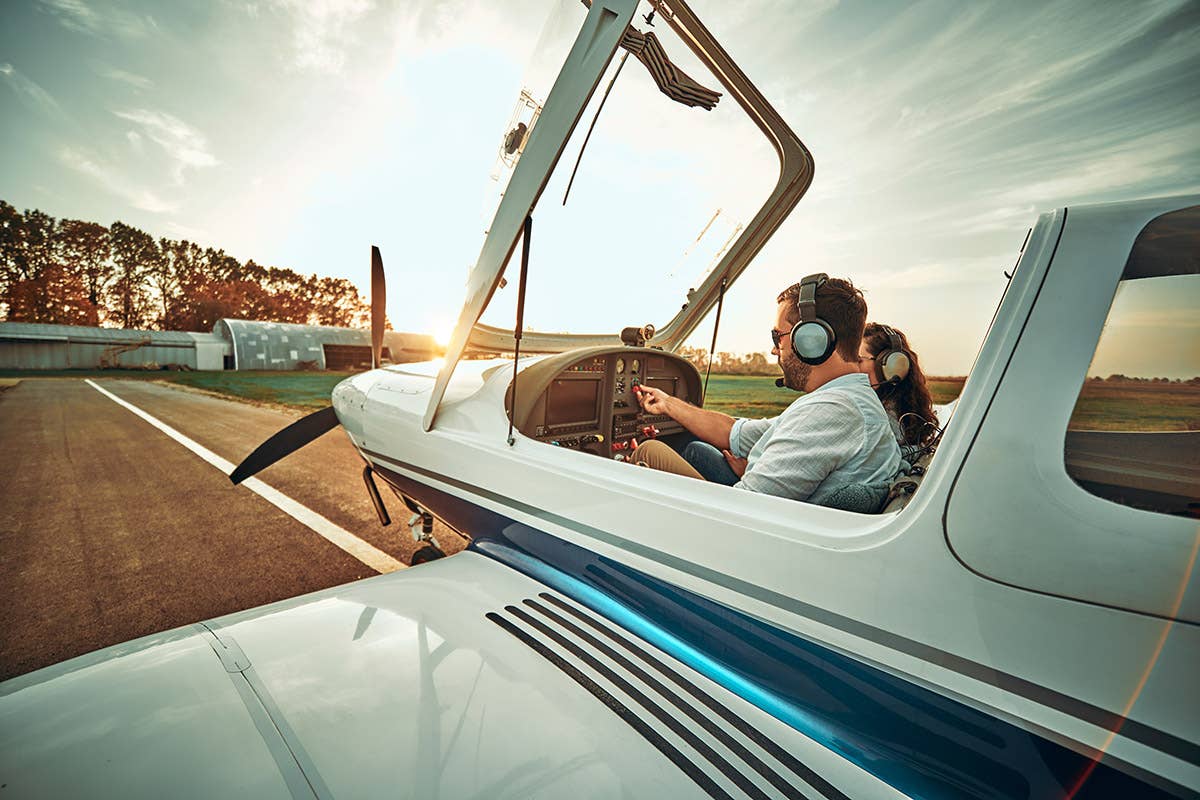
Subscribe to Our Newsletter
Get the latest FLYING stories delivered directly to your inbox


